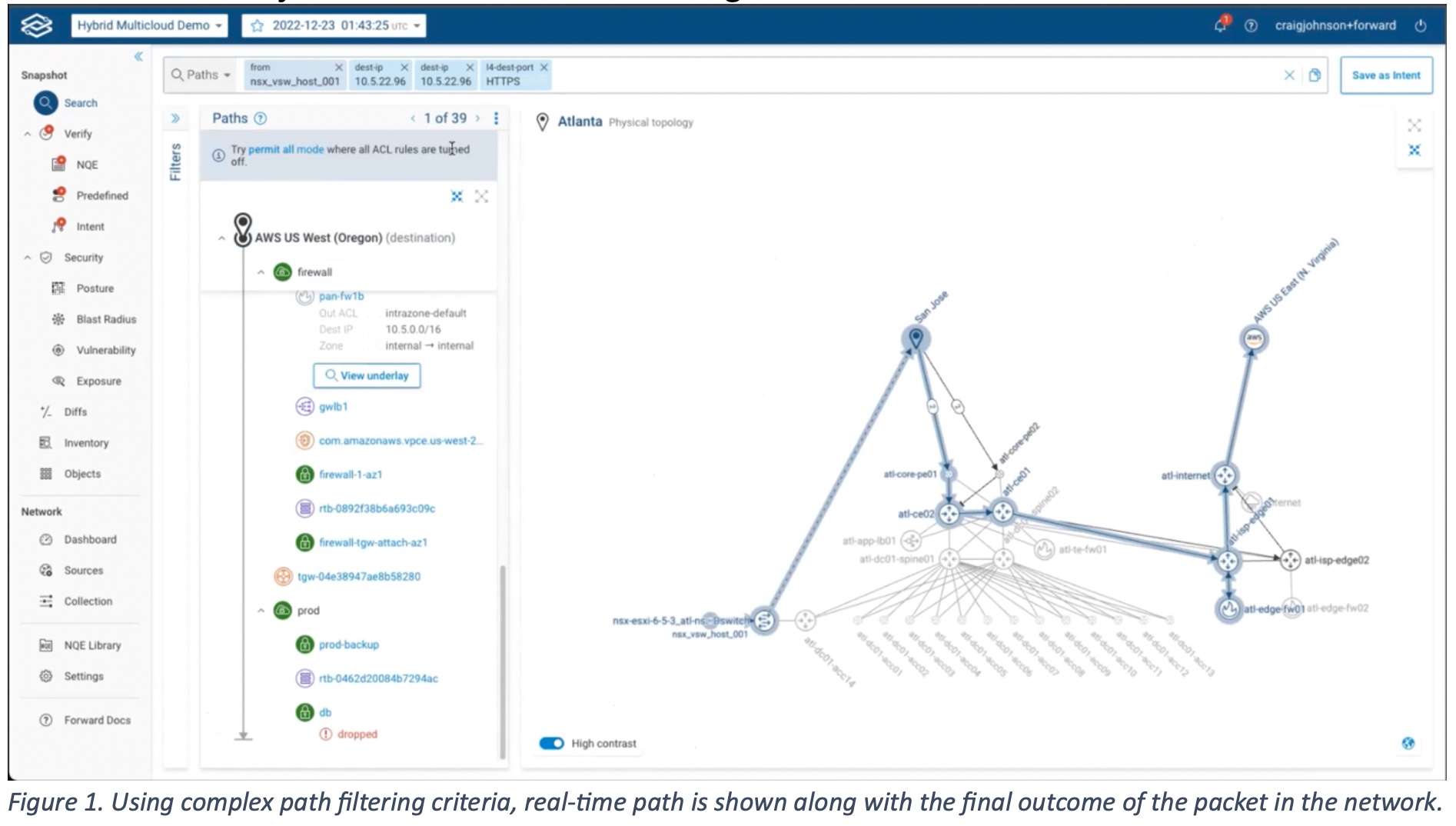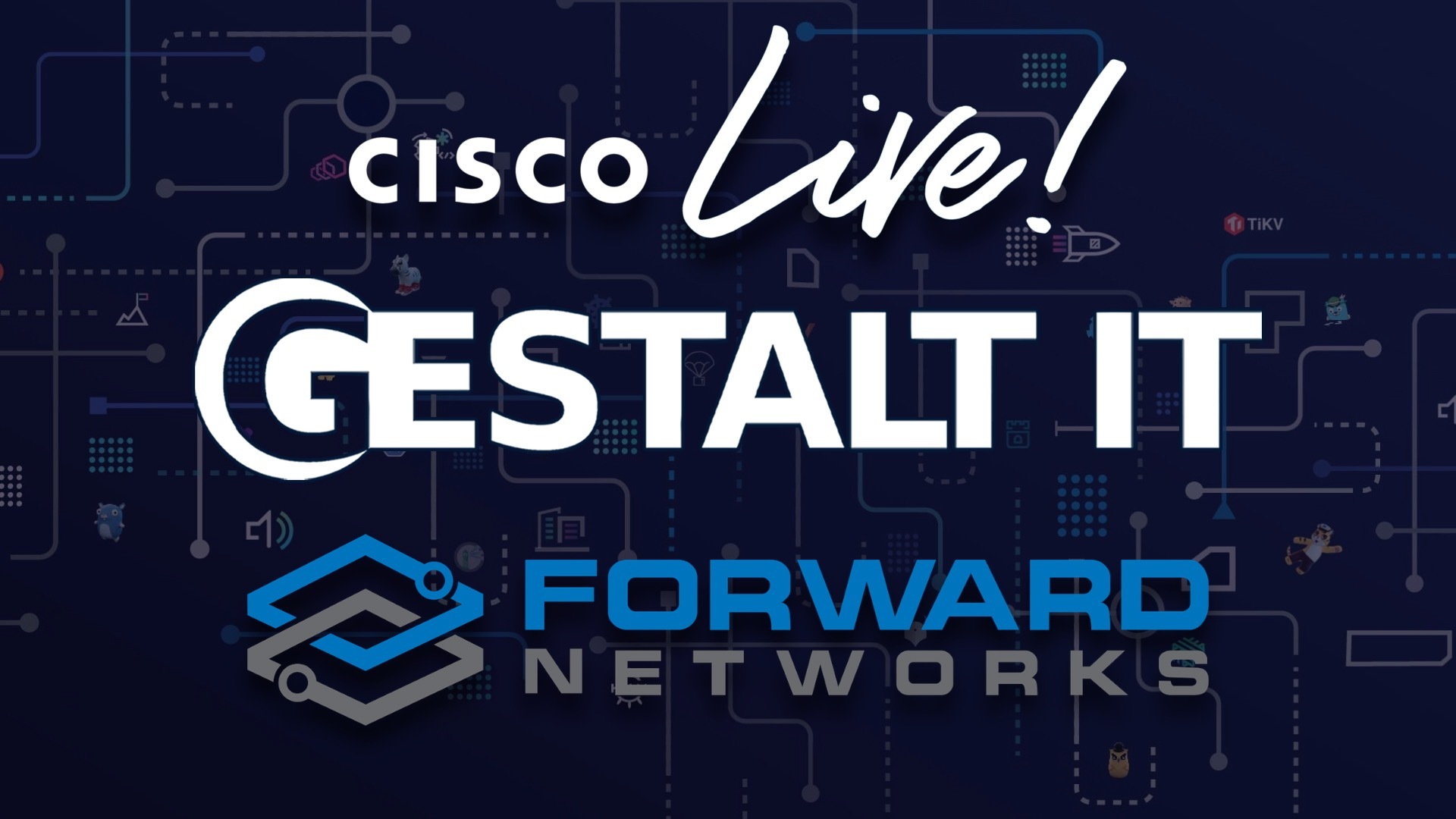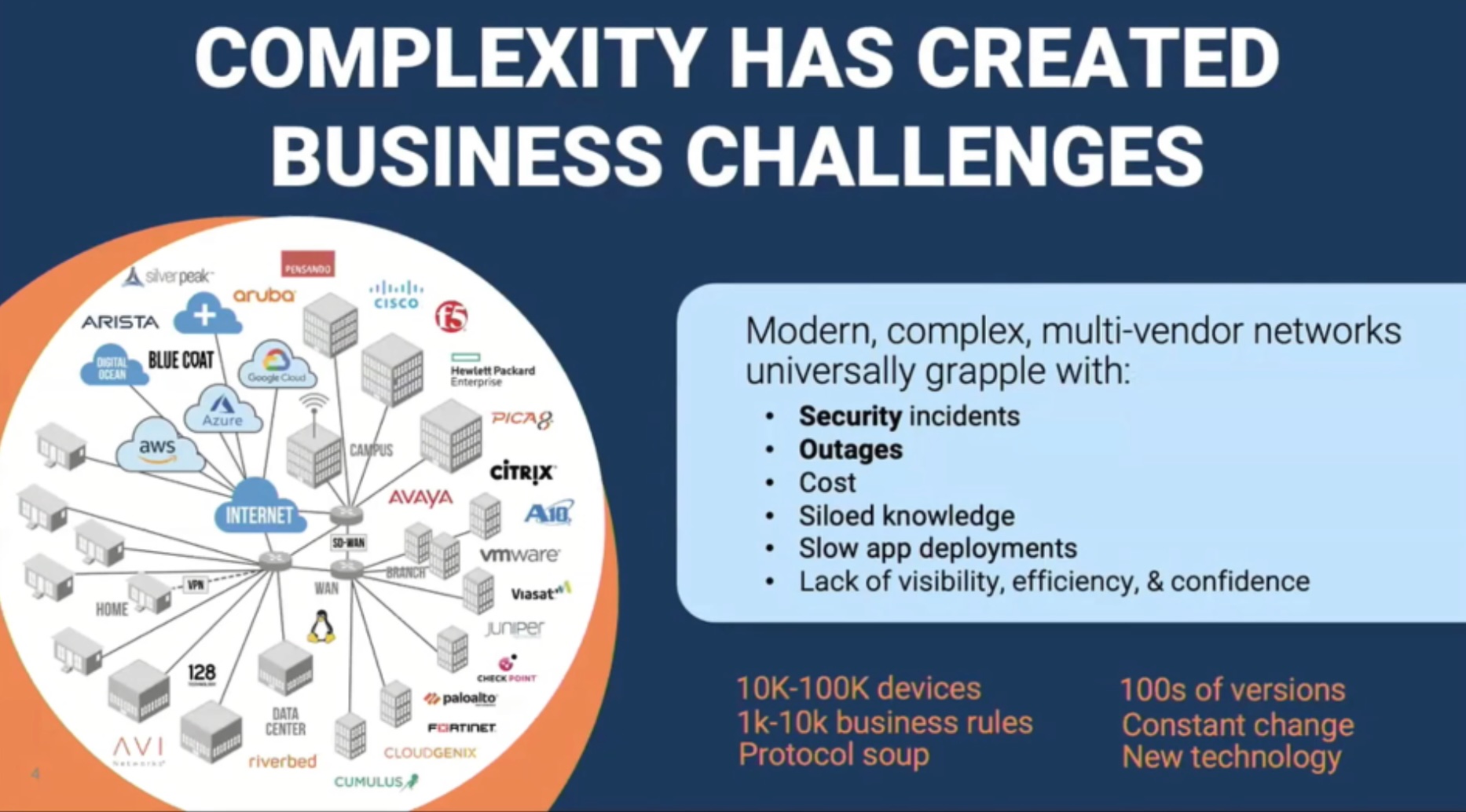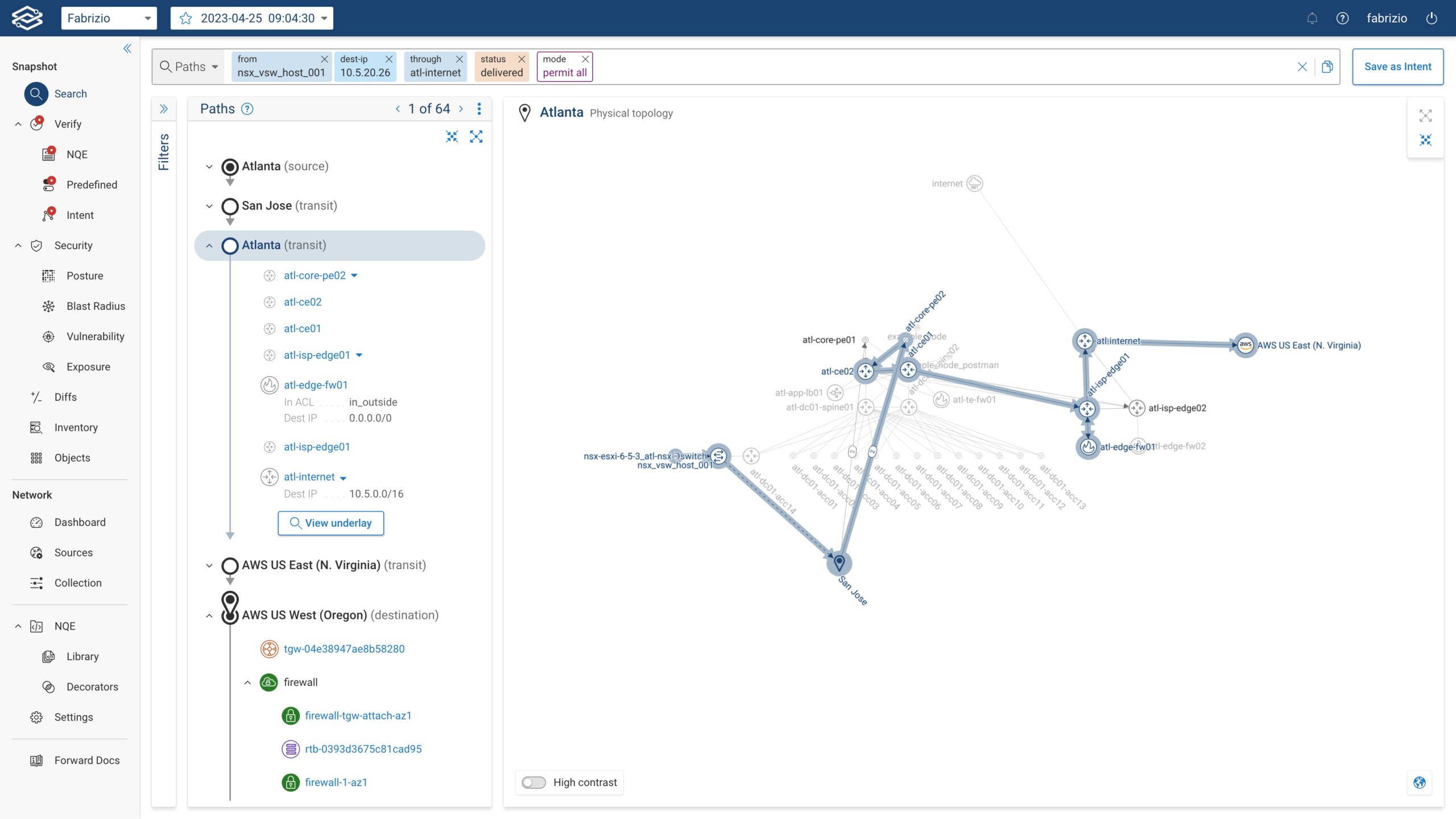When Google Maps puts together a list of destinations deducing from the time of the day, and your usual ports of call, or when Netflix recommends movies based on what you’ve seen and liked, that’s AI at work.
For years, people in IT have dreamed of having the same ease and convenience in their jobs. Generative AI has opened ways that would elevate the aggregate experience of IT professionals.
At the recent Networking Field Day event, Forward Networks introduced AI Assistant, a new natural language interface for the Forward Networks platform. At first pass, it may sound like a run-of-the-mill refresh against the backdrop of industry-wide AI integrations. But this solution is not cut from the same cloth as some others. It is going to be integral to the usability of GenAI in organizations.
“We are super-excited about the opportunity of integrating AI capabilities with the digital capabilities for a particular reason,” says Nikhil Handigol, Co-founder. “One is the high-level opportunity that we see in combining the broad general capabilities of AI. But what’s even more exciting is what it can unlock when combined with the deep and specific knowledge that the digital twin has.”
A Worrying Gap in Trust
The growing use of GenAI in workplaces has everybody from C-suite leaders down to entry-level workers, anxious about its impact. Artificial intelligence poses certain risks. It provides no guarantees for the accuracy of its results.
Chatbots learn from huge amounts of raw digital data sourced from various places. They pin down patterns and generate a response extrapolating from this data. When trained with generic or scant data, the large language models (LLMs) working behind these services, frequently display problematic behaviors. These include hallucinations, and untrue or heavily-biased responses.
This trait has weakened confidence and sparked speculations among users.
A Solution that Validates by Default
Forward Network’s signature digital twin technology offers a cure for this. “The digital twin technology is going to be key in bringing that trust to the table because one of the capabilities it has is validation, to say that the network is behaving as it is intended to be,” says Handigol. “That is going to making AI systems deployable with trust.”
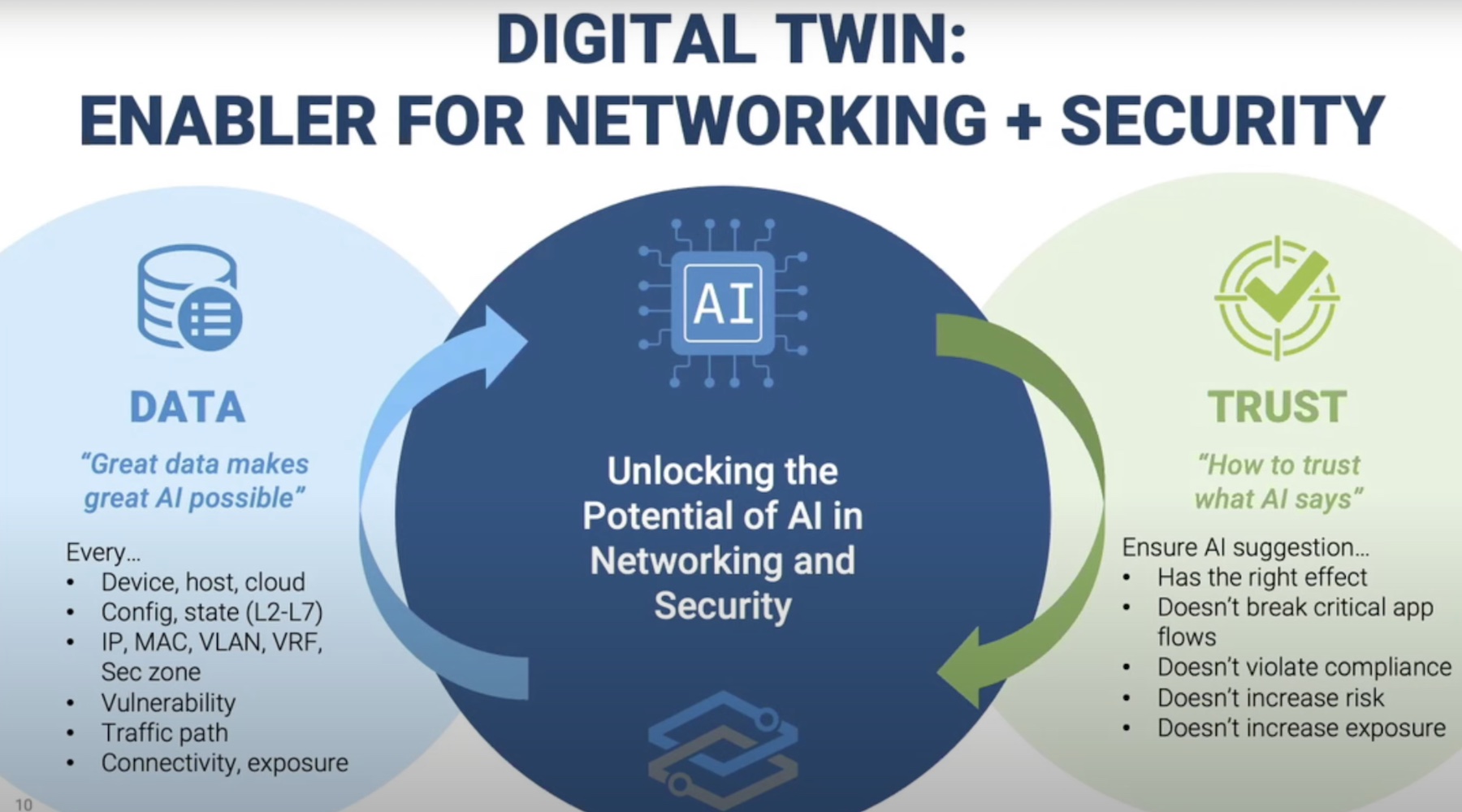
The digital twin bears a preposterous amount of data that can serve IT personas like NetOps and SecOps, to audit and compliance. No matter which side of the desk they sit on, they can harvest this pre-validated data and get work done.
But it’s a cumbersome chore. “It can take anywhere from days, weeks to months, and some of the low priority things never get done because it just takes forever.”
With a feature called Natural Query Engine (NQE), Forward Networks makes mining this data super simple. “NQE basically provides access to parsed and normalized data about the network via a simple query language,” he explains.
It’s like querying a database – everything is presented in easy, consumable, report formats.
Ensuring Trust in GenAI
AI Assist makes it even simpler. The interface can generate queries with plain English prompts. This not only makes the process streamlined and several steps shorter, it also helps build confidence in AI. AI Assistant does not just bluntly spit out a response that may or may not be wrong. You know exactly what the system is going to run, and are not left wondering if the system understood you, or if you communicated what you wanted clearly, says Handigol.
Users can examine the query, edit it when necessary, and run it directly on the data.
The LLM working behind this is a state-of-the-art model that has been heavily custom-worked and tuned to the use case. “Just a model out-of-the-box would not have been able to do this,” he says. “So we had to do a lot of custom work on top of it in terms of fine-tuning and prepping it, to be able to do this task. We layered a lot of other techniques on top too to make it generate NQE queries because there’s not a lot of NQE data out there.”
While comfort and convenience go a long way in IT jobs, Forward Networks has a bigger ambition with GenAI – to create networks that self-heal and self-drive.
Proactiveness is the mantra for self-driving networks. Already NQE comes with a library of pre-built queries that can be activated out-of-the-box to launch proactive checks.
“We have created these queries based on our learnings from our customers, on the problems and the landmines that they have seen and experienced.” This way, the roadblock one customer faces is proactively removed from the way of the others’.
For more, be sure to check out Forward Networks’ presentations from the Networking Field Day event.

